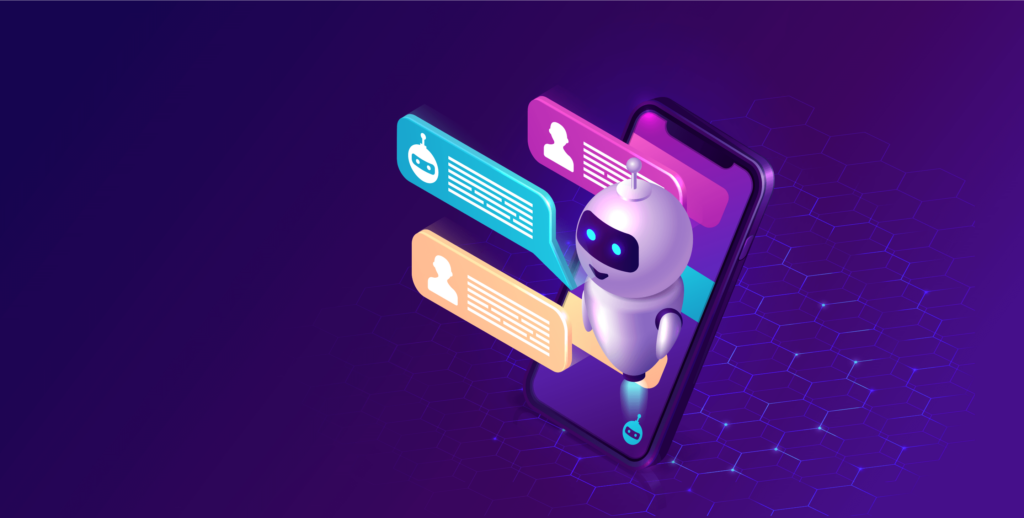In today’s fast-paced digital landscape, businesses constantly have to push to incorporate the latest technology into their organizations. As artificial intelligence has been on the rise in recent years, chatbots in customer engagement have become one of the most common uses of the new technology. These artificial intelligence-driven conversational agents have revolutionized the relationship between the customer and the company. It is an essential tool for all businesses today and can do so much more than just answer FAQs.
Table of Contents
How Do Chatbots in Customer Engagement Help?
Chatbots are great at engaging customers and holding their attention. Businesses can leverage them to develop a better relationship with their audience.
24/7 Availability
Unlike regular customer support, chatbots are available around the clock to respond to customers. Many people use their phones for shopping later in the night, often before bed. During this time, engaging them with a chatbot can be the perfect way to keep the customer engaged.
Once a customer initiates contact with your company, they are much more likely to go through with a purchase. Having a chatbot respond to them will help retain their attention and guide them through the process.
The quicker the purchasing process is completed, the more satisfied your customer will be. Your customer will have an overall positive experience and be happy to receive prompt responses.
Personalized Interactions
Chatbots in customer engagement can use complex algorithms to respond. Purchasing history, behavior patterns, and past queries can all help build the perfect response.
This can allow the chatbot to tailor answers that encourage customers to make more purchases. It can even create customized deals and offers that customers will be more likely to avail of. High-level customization makes customers more loyal and builds a strong relationship between them and the brand.

Frees Up Support Staff
Having chatbots in customer engagement deal with common problems saves resources. You can conserve your time as well as your customers’. Instead of having a support team address individual queries, you can offload any simple or common questions to a chatbot.
This means that your support team is able to focus on more complex problems.
Your customers are able to have their issues resolved more quickly. Rather than having to wait for a team member to free up, a chatbot can conduct multiple conversations simultaneously.
It also diminishes the need for a customer service team. You can hire a much leaner team that does not have to waste time responding to frequent questions.
Chatbots mean that you save a lot of resources, your employees are not stuck in repetitive work, and your customers are more satisfied with quicker service.
Multi-Channel Integration
Modern consumers use a host of different websites and platforms to reach a brand. From company websites to Facebook pages to Instagram, the options are endless. Chatbots allow you to create a streamlined, simple way to reach your customers. You can easily integrate your service across multiple platforms.
This cuts out the effort of having teams dedicated to each social media platform or training them to use each one.
Customers will feel like they can resume a conversation on any platform they use. This makes it much easier for them to engage with your company on different platforms. It will create a unified, comprehensive experience for your consumers.
Data Collection
Chatbots play a key role in data collection. They are able to store, process, and utilize customer data to extrapolate data. A lot of information can be gained through common queries.
Chatbots can analyze the most common questions. This can help you identify where there may be gaps in the information you provide on your website. It also tells you what products customers are most interested in.
You can also gain demographic information about your clientele. For instance, you may be able to collect data about your customers if they are messaging your chatbot through their social media profile. Their geographic location or age can help you understand the best way to market to these individuals.
The Future of Chatbots in Customer Engagement
Chatbots are still in their early stages, and you can expect rapid development in this technology in the coming years.
Most of the technological push for chatbots will be to make their ability to converse more human-like. Natural Language Processing (NLP) and emotional intelligence are some of the models being developed to meet this end.
Chatbots will also be trained to respond to more complex queries and personalize their responses. This can even include the ability to respond to images or voice messages.
OpenAI has also announced that they will introduce the capability to produce and train specialized chatbots this year. The most unusual part of this announcement is that these bots will require no coding experience and are available to anyone.
However, this type of AI is being scrutinized by customers as concerns around data protection grow. Many customers do not feel safe with their questions being used to collect data. In the upcoming year, you can also expect to see new laws that regulate the use of chatbots by businesses.
What do you think about the role of AI chatbots in customer engagement? Will they revolutionize it or break trust with customers? Let us know in the comments below.
For more similar blogs, visit EvolveDash today!
FAQs
- Can chatbots replace human customer support teams entirely?
No, while chatbots can handle many routine tasks, they are not a complete replacement for human agents. Some issues require human understanding, especially complex complaints, sensitive matters, or unique requests that AI cannot handle effectively.
- How do chatbots handle multiple languages?
Many advanced chatbots support multiple languages through AI-driven translation and natural language processing (NLP). Businesses can train their bots to detect and respond in different languages based on customer preferences.
- Are chatbot responses always accurate?
Not always. Chatbots rely on pre-set rules and AI learning models, so they may misunderstand queries or provide incorrect answers. Businesses must regularly update and refine their chatbot’s knowledge base to maintain accuracy.
- Can chatbots integrate with CRM systems?
Yes, many chatbot platforms allow integration with CRM (Customer Relationship Management) tools. This helps businesses track customer interactions, personalize experiences, and improve service quality.
- Do chatbots support voice interactions?
Some AI chatbots, like those powered by voice assistants (Alexa, Google Assistant), can process and respond to voice commands. This is becoming more common as NLP technology advances.



















